|

|
Nicolò Alessi in a new Postdoc with the Policy Analysis and Environmental Governance group. He holds a MA degree in Law from the University of Torino and did a PhD in Law and European and International Law at the universities of Verona and Fribourg/Freiburg (CH). His PhD thesis has been awarded the International Prize Giancarlo Doria for the best thesis in Italian and Comparative Constitutional Law. Nicolò was adjunct professor of Comparative Public Law at the University of Aosta Valley, junior researcher at the Institute for comparative federalism at Eurac research and guest researcher at the Institute of federalism of Fribourg/Freiburg. His main research interests are Italian and Comparative Constitutional Law, Diversity accommodation, Climate governance, Minority Rights, Autonomy Studies, Regionalism, and Federalism. He is also an expert on the Aosta Valley’s legal system. He has authored numerous publications and an edited book on these topic areas.
|
|
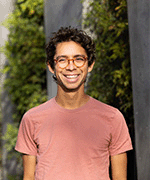
|
Philippe Colo is a new Postdoc with the Philosophy of science perspectives on the climate challenge group. He holds an engineer degree in statistics and economics form ENSAE ParisTech and a Master’s in Philosophy from Université Paris I. His PhD in economics at the Paris School of Economics was on ”Essays on the foundation of expert-based knowledge”. Philippe worked as a Postdoc at the University of Duisburg-Essen (Chair of Microeconomics) and as a Researcher at ETH Zurich (Chair of Integrative Risk Management and Economics). Before joining the OCCR he was an associated researcher at the University of Zurich (Epistemology Group on Rationality).
|
|
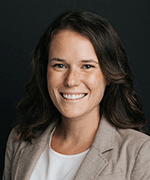
|
Laurie Durel is a new Postdoc with Policy Analysis and Environmental Governance and the Climate Change and the Law: Challenges in Practice and Legal Theory groups. She did a Master’s in International Studies in Montreal, Canada and was a Junior Visiting Fellow in Geneva and Melbourne. Her PhD in International Studies, which she expects to complete in spring 2024 at Université Laval, Canada, is entitled "An Interactional Evolution of WTO Norms Related to Border Carbon Adjustment". In the OCCR Laurie will be working in the Climate Federalism project.
|
|
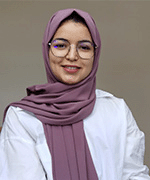
|
Yousra El-Mejjaouy is a new Postdoc with the Geocomputation and Earth Observation group. She holds an Engineering Degree in Management of Crop Production and Environment from the Agronomic and Veterinary Hassan II Institute, Rabat, Morocco. Her PhD thesis was jointly directed by the University of Liège in Belgium and the University Mohammed VI Polytechnic in Morocco, where she worked on multiscale phosphorus monitoring in soil-plant system using spectroscopic proximal sensing and UAV-based multispectral imaging. Her current research focuses on drone-based imagery for monitoring and predicting vegetation water stress across landscape-scale gradients.
|
|

|
Nicholas Ouma Ofiti is a new Postdoc with the Terrestrial Ecology group. He did his BSc in Agriculture at the University of Nairobi, Kenya and gained a MSc in Physical land resources from Ghent University, Belgium. He then did a PhD entitled Carbon dynamics in response to warming and elevated atmospheric CO2 concentration in temperate forest and boreal peatland plant-soil systems the University of Zürich. Before joining the OCCR he worked as a Postdoc at CEREEP-Ecotron IDF, Ecole Normale Supérieure, Paris. His research focus is on understanding the effect of climate and land use change on biogeochemical cycles in the terrestrial ecosystems. More specifically, he explores fundamental biogeochemical mechanisms that control the fate of carbon and nitrogen, most importantly the cycling and storage of carbon, under current and future global change drivers.
|
|
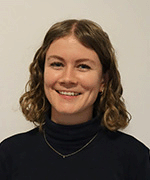
|
Jana Foecker is a new PhD with the Comparative Politics group. She holds a MSc in Environmental Studies & Sustainability Science from Lund University, Sweden. Her thesis was entitled “Solving the BECCS Puzzle – The Role of Knowledge Brokers in the Science-Policy Interface around BECCS in Sweden”. Jana’s research focus is on renewable energy technologies (particularly wind energy), climate and energy policies, energy transition, national and international comparative politics. The title of her PhD thesis is: “Trade-offs in the Swiss energy transition”.
|
|

|
Helene Hollitzer is a new PhD with the Ocean Modelling group. She did a Master's in Biological Oceanography at the Christian-Albrecht University of Kiel (CAU) in cooperation with the GEOMAR Helmholtz Centre for Ocean Research Kiel with a thesis entitled "Controls of Recent Patterns and Trends in Global Oceanic Oxygen Content." Her research focuses on high-latitude net primary productivity, ocean acidification, and the effects of riverine carbon and nutrient fluxes and coastal erosion in a changing climate, and she aims to provide reliable projections using Earth system models. The working title of her PhD thesis is: "Arctic Ocean ecosystems in the past, present, and future and the impact of carbon and nutrient fluxes from rivers and coastal erosion."
|
|

|
Linjia Huang is a new PhD with the Community Ecology group. She completed her Master's degree in ecology at the University of Chinese Academy of Sciences Beijing, China where her research focus was on fine root traits in mixed forests. Her PhD will be conducted within the BugNet project. She will investigate the interactions between enemies and mutualists and how mycorrhizal fungi modify the impact of enemies on plant community composition, diversity, and productivity.
|
|
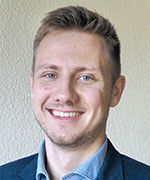
|
Severin Kaderli is a new Scientific staff member with the Mobiliar Group for Climate Impact Research. He did a Master’s in Climate Sciences with specialization in Atmospheric Sciences at the University of Bern.
|
|

|
Stéphanie Musy is a new Postdoc with the Environmental Isotopes and Gases group. She already did her PhD with the same group.
|
|

|
Louisa Neubauer is a new PhD with the Community Ecology group. She did a MSc at the University of Konstanz, Germany with a thesis entitled “Effect of antibiotics on plant-soil interactions and its impact on plants’ drought response”.
|
|

|
Azzurra Pistone is a new PhD with the Paleoecology group. She gained a Master’s degree in Climate Science from the University of Bern with a thesis entitled: “Simulating past and future refugia for temperate trees in Northen Italy”. Keywords of her current research are: European forest, Abies species, demographic history, genetic diversity, genomic signature of climate adaptation.
|
|

|
Emma Spezia is a new PhD with the Geocomputation and Earth Observation group. She does her PhD within the SNFS project CHARIBDIS. Emma finished her MSc in theoretical physics at the University of Pisa with a thesis entitled “Renormalization Group Flow in defect 1d theory”. In her PhD, Emma will explore the dynamic future evolution of the Antarctic Ice Sheet employing ice dynamic models and a variety of climate scenarios. The main goal of her work will be to constrain current uncertainties in the mid- to long-term sea level contributions of the Antarctic Ice Sheet using an isochronally calibrated ice sheet model.
|
|
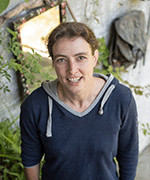
|
Gemma Rutten is a new Postdoc with the Community Ecology group. She was already affiliated with the OCCR during her PhD on the Kilimanjaro Project (Plant ecology group of the UniBe). She then worked as a Postdoc in Spain (CSIC-IRNAS, Seville), Germany (iDiv, Halle) and France (LECA, Grenoble). Her research aims to improve the understanding of plant-soil feedbacks that help explain the coexistence and biogeography of plants and their associated microbes. She likes to combine observations along environmental gradients with controlled experiments and profiling of the microbiome, to unravel the mechanisms underlying plant-soil feedback under changing conditions.
|